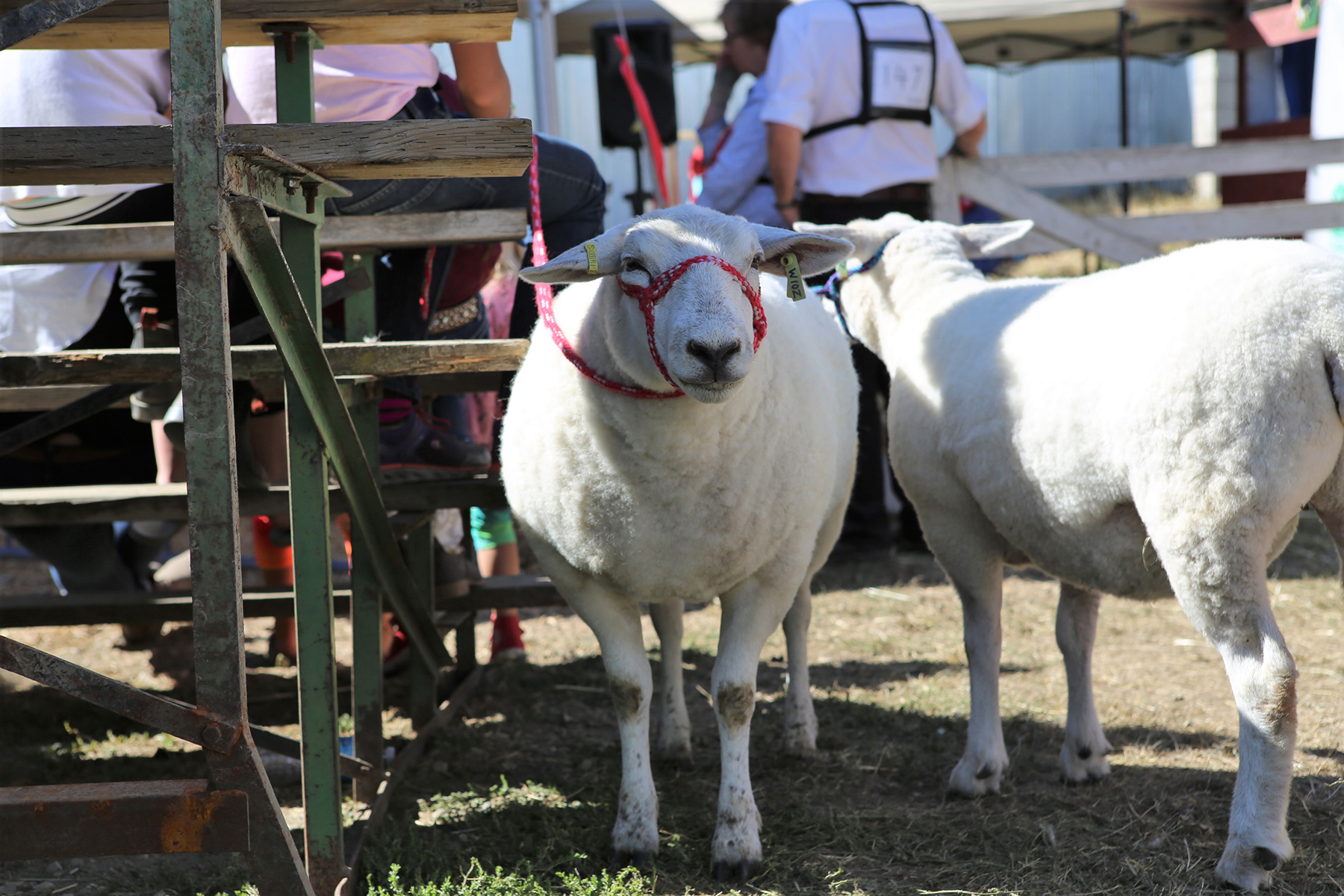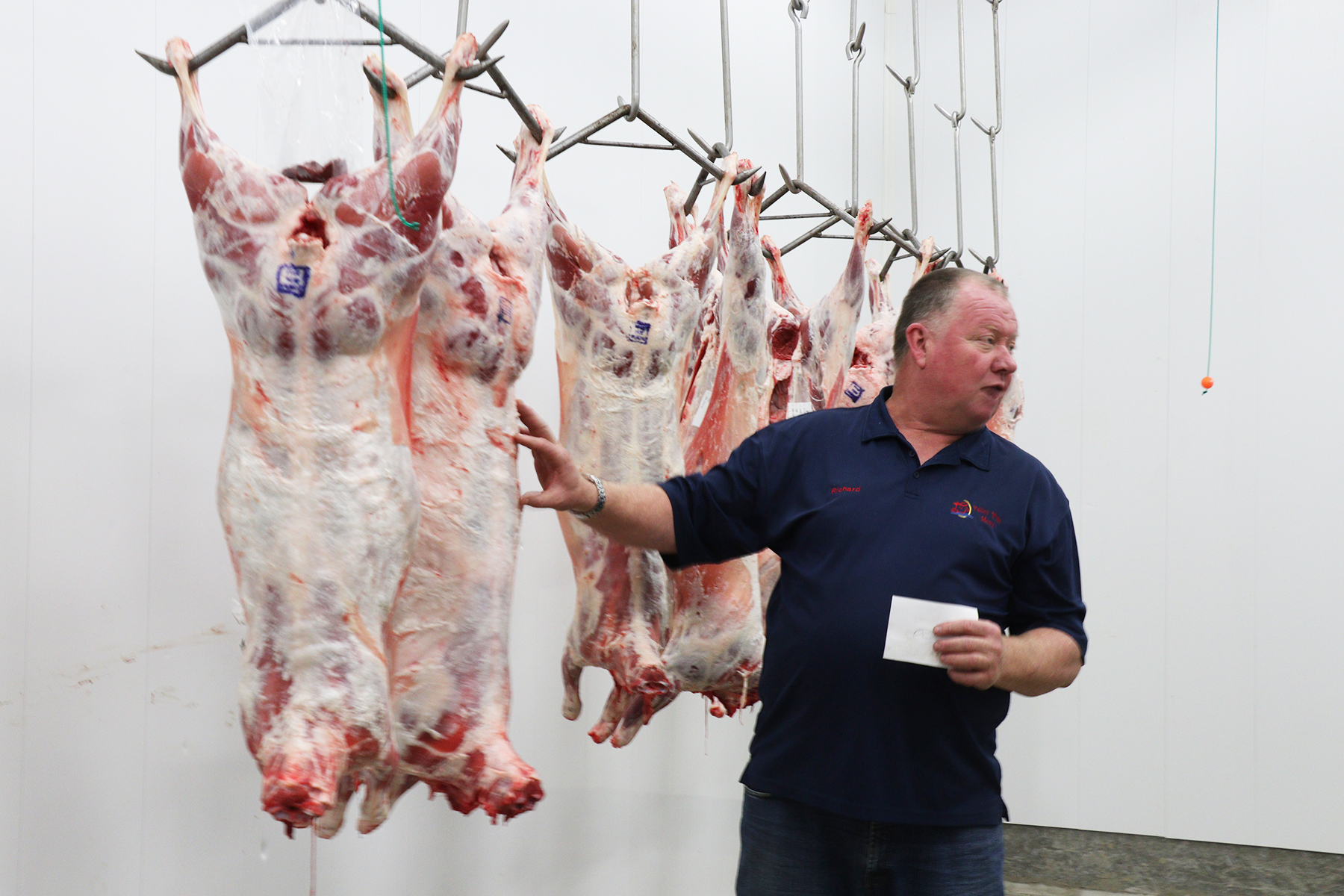ARMSTRONG – The Canadian Cattle Identification Agency wants farmers to get ahead of new traceability regulations expected to come into effect next year.
CCIA general manager Anne Brunet-Burgess has worked on the regulations since 2015 and the due date has moved several times, but she now expects the first draft to be published in spring 2019.
“Everyone can read them once they’re posted,” she says. “There will be a 75-day comment period where anyone and everyone can make comments.”
The document is currently classified but Brunet-Burgess encouraged BC Sheep Federation members attending their annual general meeting in Armstrong on September 28-29 to get informed.
She expects some changes to the regulations when the comment period ends but she’s confident the second draft will go into effect in 2019.
“There’s a one-year implementation period so that’s basically self-enforcement, no fines,” adds Brunet-Burgess. “But it’s that one year where we have to get our poop in a group and make sure everyone knows what they’re supposed to do and make sure everyone knows how to do it and support them on this before it is actually a for real thing.”
She says traceability is currently a book-end system with indicators (or tags) issued at birth and retired upon death of an animal. The new regulations aim to fill in the blanks.
Livestock movement will be tracked
“The middle part is what’s coming, which is the movement piece. And that, again, is going to be a huge impact on all livestock producers. Every movement of every animal will have to be reported,” she says.
A critical component of the new regulations will be having a premises identification (PID) number to identify all sites that receive regulated animals including farms, abattoirs, fairgrounds and veterinarian clinics.
Brunet-Burgess encourages producers to contact the BC Ministry of Agriculture to obtain one or more PIDs before the regulations come into effect and to update their Canadian Livestock Tracking System (CLTS) account with this information. (Anyone ever issued a tag has a CLTS account, which is accessible by calling 1-877-909-2333 or at [www.canadaid.ca].)
The good news is that PIDs proved to be effective for BC farmers and ranchers during the last two summers of record-breaking wildfires, and the majority of producers now have them.
“Producers themselves are talking about the usefulness of PIDs. So that’s great to hear,” she says. “Folks do not see the urgency of getting one if they don’t think they need it.”
Reporting of animal or carcass movement will require reporting within seven days including the information of departure and arrival PIDs and a licence plate number or other identification of the means of conveyance.
Brunet-Burgess suggests that farmers and ranchers acquaint themselves with the movement reporting requirements and do some practice runs before next year.
Prince George sheep and cattle ranchers Roma and Jim Tingle are concerned that the new regulations will be overly onerous, hard to enforce and lay yet more costs on farmers.
“We have so many small producers with just a few who know about these changes,” says Roma Tingle. “That concerns me a lot because there’s no way to police this. There’s going to be no way to get to these people and people cannot afford the time and, to some extent, money to do this.”
The sheep federation’s outgoing president Valerie Gerber sees the changes as a necessary evil but also worries about how they’ll affect farmers.
“We’re already so busy trying to make a living,” says Gerber. “I don’t know how it’s going to pan out.”
Brunet-Burgess says the CCIA is well aware of producers’ concerns, particularly the added cost, and although they do not lobby government, others are bending politicians’ ears.
“I can tell you that there’s been a group of very dedicated producers lobbying on behalf of all species and all producers to come up with a brilliant solution on this,” says Brunet-Burgess.


 Success starts with solid business plan
Success starts with solid business plan